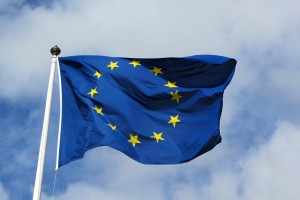
After more than 40 years of operation, DTVE is closing its doors and our website will no longer be updated daily. Thank you for all of your support.
European parliament passes controversial copyright directive
 The European Parliament has approved the controversial new copyright directive that has attracted the wrath of internet giants including Google but has won support from broadcasters and content rights-holders.
The European Parliament has approved the controversial new copyright directive that has attracted the wrath of internet giants including Google but has won support from broadcasters and content rights-holders.
The Parliament approved the new directive by 348 votes to 274, with 36 abstentions, marking the end of a process that kicked off in 2016.
It will now be down to member states to approve the decision, represented by the European Council. Once approval is secured, the rules will take effect after publication in the official journal, giving member states two years to implement the directive in domestic legislation.
The parliament said that the aim of the directive was to ensure that rights-holders, including musicians and writers as well as news publishers have a better opportunity to negotiate remuneration deals with internet platforms, making the latter directly liable for content uploaded to their sites.
The text of the directive specifies that non-commercial sites such as Wikipedia and open source software platforms such as GitHub are excluded from the rules, while startup platforms with a smaller reach will be subject to lighter obligations.
“This directive is an important step towards correcting a situation which has allowed a few companies to earn huge sums of money without properly remunerating the thousands of creatives and journalists whose work they depend on,” saidrapporteur Axel Voss, a key promoter of the legislation.
“At the same time, the adopted text contains numerous provisions that will guarantee that the internet remains a space for free expression. These provisions were not in themselves necessary, because the directive will not be creating any new rights for rights holders. Yet we listened to the concerns raised and chose to doubly guarantee the freedom of expression. The ‘meme’, the ‘gif’, the ‘snippet’ are now protected more than ever before.”
Voss said the directive “protects people’s living, safeguards democracy by defending a diverse media landscape, entrenches freedom of expression, and encourages start-ups and technological development. It helps make the internet ready for the future, a space which benefits everyone, not only a powerful few.”
Opposing the measure, MEP Julia Reda described the passing of the directive as “a dark day for internet freedom”. Reda said that a move to vote on individual amendments, including a proposal to remove the most controversial part of the legislation, Article 13, had been defeated by five votes.
Speaking at the Series Mania event in Lille, Carina Tornblom, senior expert and political adviser for consumer affairs at the EC, said that “freedom of expression is intact” and people will still be able to upload content freely. She said that platforms should pay licence fees. Consumers would “vote with their feet” if platforms did not pay their dues and ensure that content continued to be distributed with them, she said.


